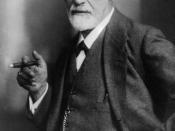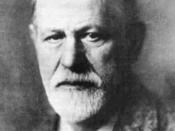The study of the way people think and behave is called psychology. The field of psychology has a number of sub-disciplines devoted to the study of the different levels and contexts of human thought and behavior. In early psychology, the different perspectives are functionalism, Gestalt, behavioral, psychodynamic, humanistic, physiological, evolutionary, cognitive, and cultural and diversity.
The structuralism approach, which according to the textbook is the earliest approach in modern psychology, attempts to identify the basic elements and structure of conscious experience. Wundt believed that the essence of all total adjustments of the organism was a psychophysical process, an organic response mediated by both the physiological and the psychological. He pioneered the concept of stating mental events in relation to objectively knowable and measurable stimuli and reactions. Wundt perceived psychology as part of an elaborate philosophy where mind is seen as an activity, not a substance.
The functionalism approach focuses on the purposes of consciousness, what the mind does and why, and how that information could be put to practical use.
It implies that human mental states are not restricted to human biological systems, such as brains. James' idea was to study the causes, conditions, and immediate consequences of our actions and how we could benefit from the knowledge attained to adapt to our environment.
The Gestalt perspective focuses on our perception of a whole being different from our perception of the individual stimuli. If a cause and its effect are taken as separate events we see that differently than if the entire happening, cause and effect included, is viewed as a whole.
The behavioral perspective focuses on the importance of learning and understanding how various behaviors occur. In other words, it acknowledges observable behavior and emphasizes the learned nature of behavior. Ivan Pavlov, while studying dogs, started to notice the...


